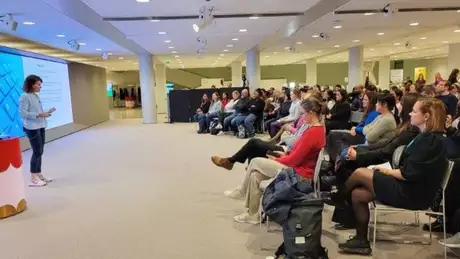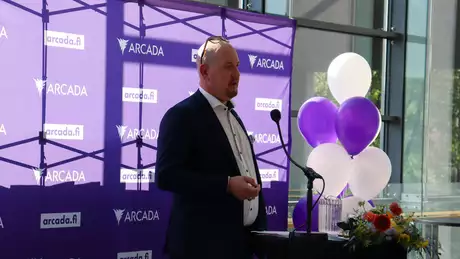The title of my thesis is “European Convention on Human Rights and the Protection of Private Life, Freedom of Expression and Access to Information in a Digital Age”. The thesis examines the case-law of the European Court of Human Rights (the ECtHR) concerning the rights to private life and freedom of expression on the Internet. The ECtHR has been criticized for its decisions in the field of private life or freedom of expression on the Internet. It has been voiced that the ECtHR lacks understanding of the ways that the Internet works, and that the lack of understanding has led to inconsistent decisions, a lack of clarity and missing protection of the human rights.
With this as the starting point, I have examined whether the ECtHR may in fact be said to have created consistency and clarity in its decisions. The thesis therefore presents principles on legal interpretation, and the ECtHR´s case-law on freedom of expression or private life on the Internet. Among the methods that are applied in the thesis are the IRAC structure on presentation of case-law, and the principles of legal interpretation.
Through my work on the thesis, I obtained insight in the case-law of the ECtHR relating to private life and freedom of expression on the Internet. It is an important insight because the number of such cases has grown, and it has become a significant part of European human rights. The research has enabled me to explain the logics behind the ECtHR decisions in such cases. It has therefore strengthened my ability to work with law relating to freedom of expression or private life on the Internet. Most issues concerning freedom of expression or private life on the Internet, are however not decided by the ECtHR or domestic courts. They are dealt with by private companies such as Google, YouTube, Facebook, Instagram, and many more. I have worked for such companies in Dublin and have focused on content policies.
My motivation to conduct the degree at Arcada was, inter alia, to strengthen my ability to contribute to content policies in this field that is, first and foremost, “self-regulated”, which means that it is the companies themselves that set the policies and act on them.
The knowledge that I have obtained will be of great importance to my continued work with companies that decide on people´s private life and freedom of expression on the Internet. Specifically, the thesis has strengthened my ability to reach conclusions that are sound and well-balanced and which respect the competing rights to respects for private life and freedom of expression on the Internet.
The description of the degree program includes that Media Management at Arcada enables students to “take part in substantive discussions and make decisions according to changing circumstances” and the “thesis work gives you the chance to specialise according to your personal background and interests.” I have utilised this opportunity to strengthen my knowledge in a field that I was familiar with and a field which is challenging because new situations always arise.
Besides the knowledge which the thesis has brought to me, I do also find that it contributes to the field of media management. The thesis explains the reasoning of the ECtHR in cases relating to private life or freedom of expression on the Internet. Private companies may often find it confusing how the ECtHR reaches its conclusions in this field. The thesis does therefore offer clarity that may help inform companies, so that they become better able to decide in conformity with the expectations of the ECtHR.
The thesis explains step-by-step how the ECtHR decides in such cases, and this understanding may be useful to companies when they seek to balance the competing rights to private life and freedom of expression on the Internet. The thesis may therefore be of importance to companies in their decision-making in this field. This knowledge may be used in the writing of content policies. Since the thesis contains an assessment of 100 cases, it is even possible for companies to use the thesis to inform themselves on each case that the ECtHR has decided and that is similar to a situation the private company must decide.
The thesis may in other words help media companies reach more informed decisions and give them tools to decide instances between private life and freedom of expression on the Internet.
The description of the degree program mentions that Media Management at Arcada is relevant to students who are looking for tools to manage a media team or media organisation in a sustainable way. I find that it may be called “sustainable” when the thesis offers information that can help companies to make well-informed decisions and avoid law-cases or gain a better chance to win the cases, since its decisions are in conformity with the case-law of the ECtHR. I do also find that it may be called “sustainable” to society overall, since the information in the thesis may contribute to decisions that protect the fundamental rights to private life and freedom of expression.
The description details that Media Management at Arcada seeks that students learn to increase the quality of media. Some companies have been reluctant to offer user-generated content such as the chance for readers to comment on articles. The companies have been worried because of uncertainty as to whether they could be met with claims and damages for unlawful user-comments. The thesis does, for instance, explain to companies how they may plan user-generated content so that it respects the case-law of the ECtHR.
The description highlights that successful media managers need a multidisciplinary understanding, including technology. The thesis builds upon this with its focus on the Internet and online media. As the description rightly states, “Media Management at Arcada provides you with skills, competencies and knowledge needed for navigating the ever-changing media environment.” The thesis has handled this from a legal and company perspective.
I agree that Media Management at Arcada offered me “a unique opportunity to integrate previous studies and professional experience with fresh in-depth knowledge”, and I find that my choice of research and how I conducted it was in line with this objective.
Text: Jakob Sjöberg, Media Management student


